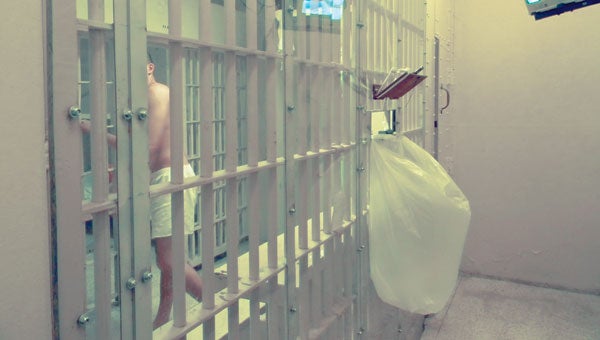Board votes: no jail without referendum
Published 5:26 pm Tuesday, January 6, 2015
 In an expected move at Monday night’s meeting, the Beaufort County Board of Commissioners voted 4-3 to make no future expenditures for a new county jail without a referendum.
In an expected move at Monday night’s meeting, the Beaufort County Board of Commissioners voted 4-3 to make no future expenditures for a new county jail without a referendum.
Commissioners Gary Brinn, Ron Buzzeo, Hood Richardson and Frankie Waters placed the controversial decision to build a new public safety facility in the public’s hands. Commissioners Robert Belcher, Ed Booth and Jerry Langley voted against the measure.
Last month, at the first meeting that included newly elected members of the board, commissioners voted to put a halt to all jail-planning expenditures, but declined to make any other decisions regarding the construction of a $22 million dollar facility that would include space for the sheriff’s office, Beaufort County Emergency Management and a 911 call center. At the time, commissioners planned to wait until the SBI returned its findings on the suicide of a Beaufort County inmate on Nov. 30. The SBI investigation had not been returned as of Monday.
Building a new facility without the public’s input may have been put to rest, but the meeting was not without flare-ups surrounding the issue. One of the first items of business was to remove the majority of Richardson’s agenda items, most of which concerned the existing jail or a new jail. Though Board Chairman Brinn pointed out that many of the items were set to be discussed quarterly — and a resolution asking Superior Court Judge Wayland Sermons Jr. to vacate the court order regarding oversight of the current and proposed jail facilities would not be addressed until the SBI returned its report — Richardson objected to the move. With three minutes of the allowed 10 minutes of discussion left, Richardson used the time to take Brinn and the rest of the board to task, congratulate 2nd Judicial District Attorney Seth Edwards for emptying the jail and accuse Langley and Sermons of forging a backroom deal to get a new jail built — an accusation to which Langley strongly objected, challenging Richardson to come back to the next meeting with proof or admit to the untruth.
During the public comment period, several residents spoke against the construction of a new public safety facility, wasteful spending and the commitment commissioners had previously made to “stop the jail,” while a lone supporter of a new facility, Sara Gurganus, questioned commissioners’ agendas, specifically about helping kill the prospect of a USDA loan that could have funded a new facility without burdening county taxpayers.
The vote to stop plans for a facility until the public’s approval is in place came later in the meeting, and, initially, Richardson’s motion did not have the majority support. Buzzeo questioned its wording, which included removing funding for not only a jail, but the sheriff’s office and courthouse.
“We have issues with the courthouse. The way this reads, if we want to spend any money to improve the sheriff’s office or courthouse, this would prohibit it,” Buzzeo said. “If it just relates to the jail, I can support the motion, but not the sheriff’s office and courthouse.”
The Beaufort County Courthouse and the detention center in its basement have had ongoing problems, as has the building housing the Beaufort County Sheriff’s Office, most of which have been attributed to the buildings’ age. In the summer of 2013, Beaufort County inmates were farmed out to facilities in surrounding counties after back-to-back electrical outages, and the discovery of bad wiring, shut down the detention center. The expense to Beaufort County was nearly $600,000.
Richardson changed the motion to include only future expenditures on a jail and the measure then passed.





